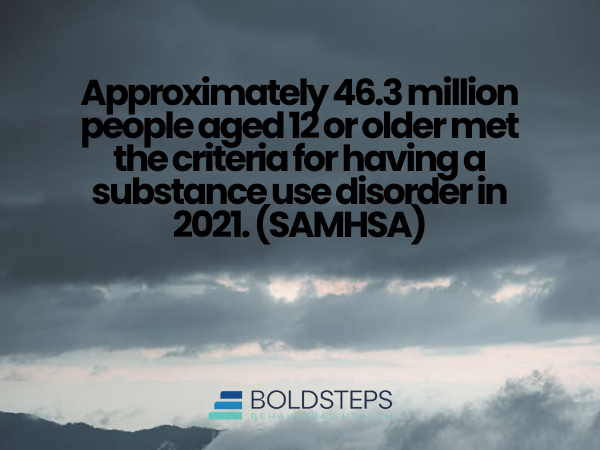Addiction is one of the most misunderstood and stigmatized conditions in society today. Despite significant progress in understanding substance use disorders as chronic medical conditions, the stigma surrounding addiction continues to harm individuals, families, and communities. Stigma fosters shame, prevents people from seeking help, and perpetuates misinformation about addiction and recovery.
At Bold Steps New Hampshire, we are dedicated to addressing this stigma and promoting a culture of support, education, and compassion. Through evidence-based programs, including our Addiction Treatment Program, Benzo Addiction Treatment Program, Dual Diagnosis Treatment Program, and holistic care options like Partial Hospitalization Programs and Virtual Treatment Programs, we provide individuals with the tools to overcome addiction in a safe, nonjudgmental environment.
Understanding the Stigma of Addiction
Stigma refers to the negative attitudes, beliefs, and stereotypes that society attaches to addiction. It is rooted in misunderstanding and misinformation, often leading to discrimination and social exclusion. Unlike other chronic health conditions, addiction is frequently seen as a moral failing rather than a medical condition, creating unnecessary barriers to recovery.
Types of Stigma
- Social Stigma: Negative societal attitudes toward people with substance use disorders, such as labeling them as “weak,” “lazy,” or “irresponsible.”
- Internalized Stigma: When individuals with addiction internalize societal stereotypes, leading to feelings of shame, guilt, and unworthiness.
- Institutional Stigma: Systemic barriers, such as lack of access to treatment or discriminatory policies in healthcare, employment, and education.
Consequences of Stigma
Stigma has far-reaching effects on individuals and their recovery journeys, including:
- Delayed or Avoided Treatment: Many people avoid seeking help due to fear of judgment or discrimination.
- Worsened Mental Health: Stigma exacerbates feelings of shame, guilt, and isolation, increasing the risk of depression and anxiety.
- Social Isolation: Fear of being judged often leads individuals to withdraw from family and friends.
- Inequitable Care: Stigma within healthcare systems can lead to inadequate treatment and lack of access to effective therapies.
Breaking this stigma requires a shift in how society views addiction, moving away from blame and judgment toward compassion and understanding.
Why Support and Compassion Are Essential for Recovery
Addiction is not a choice; it is a chronic medical condition influenced by biological, psychological, and environmental factors. Treating addiction requires a multifaceted approach that includes medical care, behavioral therapies, and emotional support. Compassion and support are critical components of this process, helping individuals feel valued, understood, and empowered to change.
1. Addiction is a Medical Condition, Not a Moral Failure
Scientific research shows that addiction is a chronic disease that alters brain function, particularly in areas related to reward, decision-making, and impulse control. These changes make it difficult for individuals to stop using substances without professional help.
How Bold Steps Promotes a Medical Approach
At Bold Steps Behavioral Health, our programs focus on treating addiction as a medical condition. Through services like our Medical Detox Program and Dual Diagnosis Treatment Program, we provide evidence-based care that addresses both the physical and psychological aspects of addiction.
2. Compassion Encourages Individuals to Seek Help
Fear of judgment and discrimination prevents many individuals from reaching out for the help they need. Compassionate care creates a safe and supportive environment where individuals feel empowered to take the first step toward recovery.
Our Approach to Compassionate Care
- Nonjudgmental Support: Our team treats every individual with dignity and respect, fostering trust and openness.
- Personalized Treatment Plans: Each individual’s journey is unique, so we tailor our programs to meet their specific needs.
- Accessible Options: Programs like our Virtual Treatment Program ensure that individuals can access support regardless of location or personal circumstances.
3. Support Systems Improve Recovery Outcomes
Addiction recovery is not a solitary journey. Support from family, friends, and communities plays a vital role in maintaining sobriety and building a fulfilling life in recovery.
Family and Community Support at Bold Steps
- Family Therapy: Our therapy sessions help rebuild trust, improve communication, and educate families about addiction and recovery.
- Group Therapy: By connecting with peers in similar situations, individuals build a sense of community and accountability.
- Holistic Support: Services like mindfulness training, yoga, and nutrition counseling promote overall well-being, reinforcing recovery efforts.
4. Education is Key to Reducing Stigma
Misconceptions about addiction contribute to stigma. By educating the public about the science of addiction and the effectiveness of treatment, we can dismantle harmful stereotypes and promote understanding.
How Bold Steps Educates and Advocates
- Workshops and Seminars: We offer educational resources for families, schools, and community organizations.
- Public Awareness Campaigns: Our team advocates for policies and programs that expand access to addiction treatment and mental health care.
- Integrated Treatment: Programs like our Benzo Addiction Treatment Program highlight the connection between addiction and co-occurring conditions, reducing stigma around both.
5. Compassionate Treatment Addresses Co-Occurring Disorders
Many individuals with addiction also experience mental health conditions such as anxiety, depression, or PTSD. Stigma often prevents these individuals from seeking care, leading to untreated conditions that exacerbate substance use.
Integrated Care for Co-Occurring Disorders
Our Dual Diagnosis Treatment Program provides comprehensive care for individuals with both addiction and mental health conditions, including:
- Cognitive Behavioral Therapy (CBT): Helps individuals identify and challenge negative thought patterns.
- Dialectical Behavior Therapy (DBT): Focuses on emotional regulation and stress management.
- Trauma-Informed Care: Addresses unresolved trauma that may contribute to substance use.
Programs at Bold Steps That Foster Support and Compassion
At Bold Steps Behavioral Health, we believe in a holistic approach to addiction recovery that addresses the mind, body, and spirit. Our comprehensive services include:
1. Medical Detox Program
Detoxing from substances like benzodiazepines or alcohol can be physically and emotionally challenging. Our Medical Detox Program provides 24/7 medical supervision, symptom management, and emotional support to ensure a safe and comfortable detox process.
2. Partial Hospitalization Program (PHP)
Our Partial Hospitalization Program offers intensive, structured care during the day, allowing individuals to return home in the evenings. This program is ideal for individuals needing a high level of support without residential treatment.
3. Intensive Outpatient Programs (IOP)
Our Intensive Outpatient Programs provide flexible care, allowing individuals to continue working or attending school while receiving treatment. IOP includes individual therapy, group counseling, and life skills training.
4. Outpatient Treatment Program
For those transitioning from more intensive programs, our Outpatient Treatment Program offers ongoing therapy and support to maintain progress and prevent relapse.
5. Virtual Treatment Program
Our Virtual Treatment Program ensures accessibility for individuals who may face barriers to attending in-person sessions, providing high-quality care online.
6. Holistic Therapies
We integrate holistic therapies into all our programs to promote emotional and physical well-being. These include mindfulness practices, yoga, and nutrition counseling.
How You Can Help Break the Stigma
Breaking the stigma of addiction requires collective effort. Here’s how you can contribute:
- Educate Yourself and Others: Learn about the science of addiction and share accurate information with your community.
- Use Supportive Language: Avoid stigmatizing terms like “addict” or “junkie.” Instead, use phrases like “person with a substance use disorder.”
- Be an Advocate: Support policies and initiatives that expand access to addiction treatment and mental health care.
- Offer Compassionate Support: Encourage friends and family members to seek help without judgment.
Why Choose Bold Steps Behavioral Health?
At Bold Steps Behavioral Health, we are committed to providing compassionate, evidence-based care that meets the unique needs of every individual. Here’s what sets us apart:
- Comprehensive Care: We offer a full continuum of care, from detox to outpatient services.
- Experienced Professionals: Our team includes licensed therapists, addiction specialists, and medical staff with extensive expertise.
- Holistic Approach: We address physical, emotional, and social aspects of addiction for well-rounded recovery.
- Accessibility: With in-person and virtual programs, we make high-quality care available to everyone.
Conclusion
Breaking the stigma of addiction is essential for creating a society where individuals feel empowered to seek help without fear of judgment. At Bold Steps Behavioral Health, we strive to provide compassionate care and support, helping individuals overcome addiction and reclaim their lives.
Take the first step toward recovery today. Call us at (603) 915-4223 or visit Bold Steps Behavioral Health to learn more about our programs, including our Addiction Treatment Program, Benzo Addiction Treatment Program, and Dual Diagnosis Treatment Program. Together, we can build a future of understanding, compassion, and hope.
FAQ on Breaking the Stigma of Addiction
What is the stigma of addiction?
The stigma of addiction refers to the negative stereotypes, judgments, and discrimination directed at individuals struggling with substance use disorders. It often portrays addiction as a moral failing rather than a medical condition.
How does stigma affect people with addiction?
Stigma can prevent individuals from seeking treatment, worsen feelings of shame and guilt, and lead to social isolation, discrimination, and inadequate healthcare. These barriers make recovery more challenging.
Why is support important in addiction recovery?
Support from family, friends, and communities provides encouragement, accountability, and emotional strength. Compassionate support helps individuals feel valued and motivated to pursue recovery.
What role does education play in breaking stigma?
Education helps dispel myths and misinformation about addiction. By understanding addiction as a medical condition, society can replace judgment with compassion and reduce stigma.
What are examples of compassionate addiction treatment?
Compassionate treatment includes personalized care plans, judgment-free environments, and programs like:
- Addiction Treatment Program
- Benzo Addiction Treatment Program
- Dual Diagnosis Treatment Program
- Medical Detox Program
What is Dual Diagnosis Treatment?
Dual Diagnosis Treatment addresses both addiction and co-occurring mental health disorders like anxiety, depression, or PTSD. Treating both conditions simultaneously improves recovery outcomes.
How can families support a loved one in recovery?
Families can support recovery by attending family therapy, learning about addiction, and offering nonjudgmental encouragement. Programs like Family Therapy at Bold Steps help rebuild trust and improve communication.



